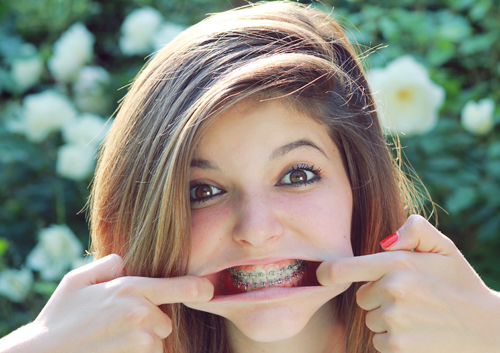December 16th, 2016

At Kildonan Orthodontics, we aren’t just concerned with straightening your teeth and giving you the beautiful smile you’ve always wanted. We are also committed improving the oral health and the well-being of all our patients. Dr. Brent Nickolaychuk and our team strive to serve our patients by educating them about their treatments, as well as making them feel as comfortable as possible during their initial consultations up until the day they complete their treatments.
Making our patients more comfortable with taking care of their braces in between visits increases the likelihood that they will complete their treatments successfully. We want you to know that if you should ever have any questions about your orthodontic treatment, whether it’s during your adjustment appointment or after hours, we are always here for you and your family.
Please do not hesitate to give us a call at our Winnipeg or Selkirk, MB office or ask us any questions you may have on our Facebook page! We can’t wait to hear from you!
December 9th, 2016

While mouthwash goes a long way in improving your oral care, it is not a substitute for flossing. Mouthwashes and flossing provide different benefits that you should understand.
Mouthwash Benefits
Mouthwash comes in two categories. Some are considered cosmetic. This type of rinse provides temporary relief from bad breath and has a pleasant taste. These do not actually kill any bacteria.
Therapeutic mouthwashes provide the healthier benefits. These may contain different ingredients including fluoride or antimicrobial agents. This type is used to remove plaque buildup and reduce the potential for calculus formation. Therapeutic rinses can also help prevent cavities, bad breath, and gingivitis. In addition, Dr. Brent Nickolaychuk can prescribe special rinses to assist patients after periodontal surgery or other procedures.
Flossing Benefits
Flossing is what removes the plaque formation before it can harden and become calculus. While a rinse reduces buildup, only flossing will fully remove plaque, especially between teeth. The bristles on a toothbrush do not get between teeth completely. If plaque is not removed, it hardens into tartar or calculus. When this builds below the gum line, gum disease can start.
Types of Floss
Floss is available in a thin string form or a tape. It can be waxed or unwaxed. If you find flossing difficult, you might want to try a different type of floss. You can buy bulk floss in containers or purchase the disposable type with a plastic handle attached. This style can be easier for many individuals to use. Interdental picks are available for bridgework or other situations where regular floss cannot be used.
If you have questions regarding the best mouthwash or floss, or need tips for easier flossing, please ask our Winnipeg or Selkirk, MB team for advice. We will be glad to give you solutions to help keep your mouth clean and healthy.
November 25th, 2016

Dental floss is similar to a lot of products that depend mainly on the consumer’s preference. Fact is, floss comes in a wide variety of flavors, coatings, and other variations, but all types of floss essentially do the same thing. After all, that is what is most important: that the dental floss you buy is functional—cleaning the areas in between your teeth. If you want to know what the best dental floss is, the answer is the kind that enables you to successfully and regularly clean those areas. So to help you find the right type of floss for you, here are some options.
Flavored Dental Floss
Many people that floss prefer a flavored dental floss because it freshens their breath even more than unscented floss. The latter can also take on the smells associated with bacteria in your mouth. And we all know how bad that can be. So, if flavored dental floss is what you prefer, and it allows you to floss your teeth regularly, then it is automatically best for your mouth.
Flossers
There are also products on the market called flossers, which usually consist of a plastic instrument with strung floss and a pick on the opposite end. This option can be both effective at cleaning the areas in between your teeth and scraping off plaque. These flossers also come flavored in mint and various other varieties.
Gentle Dental Floss
Some people find that typical dental floss is too harsh on their gums. For that reason some companies make floss with soft coatings that are less abrasive on the gums. For the most part these types of floss are just as effective as regular floss, and for those people that require a more sensitive approach to flossing, especially when just starting out, this is the best option.
Of the aforementioned options, it is difficult to name an absolute best type of floss. However, Dr. Brent Nickolaychuk and our team say that the type of floss that works best for you, giving you the greatest chance of succeeding at regular flossing, is the best. For more information on floss, contact our Winnipeg or Selkirk, MB office.
November 18th, 2016

The goal of orthodontic treatment at Kildonan Orthodontics, which may include the use of braces, retainers, and aligners, is to straighten your teeth. Treatment often starts in the pre-teen or teenage years, but adults may also need orthodontic treatment. The treatment can feel like a chore that lasts for several months or a couple of years, but it can fix important problems. These include:
- Crowded teeth spaced too close together
- Gaps between your teeth
- Crooked teeth
- Overbite or underbite
- Upper and lower teeth that do not meet
Straight Teeth are More Attractive
You are more likely to be proud of your smile when your teeth are straight and evenly spaced. Pride in your appearance can give you more confidence and encourage you to try new things. This can be particularly important for adolescents. In addition, people often judge others based on first impressions. A smile that shows straight teeth is more attractive.
Better Oral Health is Easier
Brushing and flossing your teeth are two basic components of an oral health routine to protect your teeth from conditions such as tooth decay, gingivitis, and plaque build-up. As Dr. Brent Nickolaychuk and our staff know, caring for your mouth is easier when your teeth are straight. The Canadian Dental Association says the following conditions are less likely to occur if you have the proper orthodontic treatment.
- Dental caries
- Gum disease or gingivitis
- Tooth loss
- Impaired speech
- Worn tooth enamel
Orthodontic Treatment Improves Nutrition
Poorly aligned teeth can reduce your ability to chew properly or make certain foods more difficult to eat. Many of these more challenging foods are healthy, and avoiding them can cause you to limit your diet to softer, often less-nutritious foods, such as ice cream and canned soup. Straighter teeth and a better ability to chew let you eat crunchy foods, such as apples and carrots; stringy foods, such as asparagus and chicken; and chewy foods, such as raisins.




